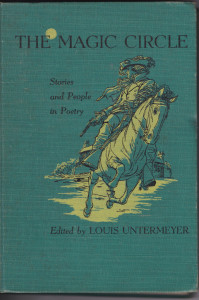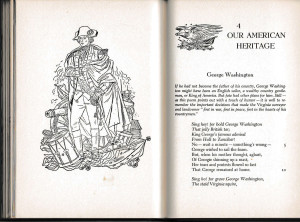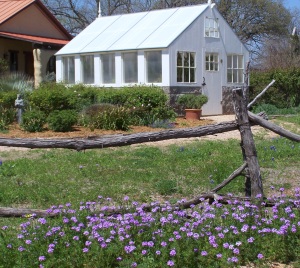I read the various news stories about the latest Islamic-inspired mass murder in India with a mixture of odd emotions. One of them being ‘Oh dear, radical Muslims again, behaving in that manner which we have come to expect,’ the second being a degree of sadness for a place and a time that I have never been a part of, but am sort-of-acquainted with, and the third being straight-out nostalgia for a vanished world. Or several vanishing worlds. I was moved take down and re-read a murder mystery from the collection in the hallway segment of the home library – M.M. Kaye’s Death in Kashmir.*
The mystery is set in the mountains in the first chapters, and then in a garrison town on the plains, and finally on Kashmir’s Lake Dal, all described most lovingly by a writer who knew them well, eight or nine decades ago. It takes place in 1947, as the British were packing up to leave India for good and all. M. M. “Mollie” Kaye’s family had served the so-called ‘Raj’ for generations; father to son, to son, to mother, to daughter, serving ad doing their bit, spending their lives there, in various capacities. Military, missionary, civil service, the railway network, overseas banking, industry, trade – generations and decades spent in the Far East in various capacities.
But by 1947, the ‘Raj’ was simply closing up shop; grievously wounded by the late war and the horrible post-atomic world, the establishment was packing up and going home, leaving India and the soon-to-be-separate Pakistan to their own devices, for which the best of the British hoped well, but weren’t holding their breath on it. The various garrisons, clubs, schools, amusements and institutions which catered to or supported the British establishment in India faced an uncertain future, if they weren’t closing down entirely. The novel touches on this soon-to-be-vanished world, which once seemed monolithic and unchanging, but which turned out to be ephemeral. In almost no time at all, the largest part left was either in the history books or living in the memories of those diminishing few who had lived in it.
I can only think that one of the reasons that I felt such a strong sense of affinity was that I also was a resident in an ephemeral world – the network of overseas American bases where I lived and worked in the 1980s and early 90s. Sondrestrom AB closed; the concrete barracks building that I lived in is now a B&B, hosting those with a taste for remote adventuring. Hellenikon AB closed, and the base buildings demolished to create the main venue for the 2004 Summer Olympics … but the facilities were abandoned and looted of useful materials before another decade passed. The American side of Zaragoza AB reverted entirely to the Spanish Air Force, as did Torrejon AB, near to Madrid. The bases are still there – but the American units are all but gone. The base at Adana/Incirlik in Turkey, hugely favored in my day as a wonderful shopping venue and a great place to serve an accompanied tour with your family, is presently anything but a safe tour. Now it’s an unaccompanied tour, and if I read the military media correctly, only absolutely essential functions are present there now. No more shopping excursions organized by the spouses’ clubs to purchase rugs, brass, art, jewelry and oriental antiques. Just about every one of the American bases in Germany closed up or downsized radically. The American military presence in Europe slowly began contracting after the fall of the Berlin Wall – which makes sense, really, but for military members who spent much of their adult lives there (or child dependents who went to US schools overseas) there is a sense of loss, knowing that those establishments are no longer there.
Only the memories remain, photographs, and souvenir mementos. The matter of memory, though, brings me around to M.M. Kaye; she had a good relationship with her parents, who seem to have been interesting and talented people, who had fascinating careers, and shared their memories of the prime of their lives at Britain’s peak on the late 19th century. In turn, she put the incidents of their lives into a memoir – so the memories are not entirely lost. This reminds me again of a conversation with another writer of historical fiction: suppose, we reasoned (we were about the same age, with parents born around 1930) that one of our parents at the age of ten or twelve, spoke to the oldest person that they knew then, who told them stories of their lives. So that person would have been born between 1850-1860, with memories of the American Civil War, and the aftermath, the Lincoln assassination, the wild post-war west, of wagon trains, Indian wars and Jesse James. Now, we speculated – suppose that person, born in 1850 0r 1860 – at the age of ten or twelve, spoke to and listened to stories told by the oldest person that they knew – say around 1865. That senior citizen would have been born perhaps in 1775, and might have had childhood recollections of the Revolution, of seeing General Washington and his rebel army marching past, heard tales of the original Boston Tea Party, heard the bells announcing the Declaration of Independence.
It was an interesting thought – that even as we might seem distant from historical events of the recent past, perhaps we are really only three or four lives removed from distant history.
Comment as you wish.
*The mystery itself is fair enough – the eventual reveal of the murderer as a deep-cover Soviet agent is quite startling, because that well-drawn character has been near-front and center for most of the book. From a plotting standpoint, I would have liked to have seen a few more scattered hints of Communist sympathies on that character’s part. As another character commented, “The life of the party … but no one ever suspected which Party!”







